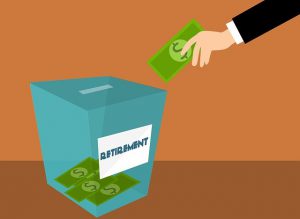Self-Employed Retirement Plan
Even though most of the time we just want to sit back, relax, watch a movie with our friends or play some online casinos games with betway bonus code, thinking about our future and planning ahead is important. It is difficult to come up with a sustainable financial plan, especially one that involves retirement. Self-employed people, particularly those that are unable to save large amounts of money, are faced with the question of which alternatives to 401(k) are the best for them. Here are a few ideas.
Problems
When running a business, there are so many things you have to take care of on a regular basis, and planning a retirement takes a back seat. There are many entrepreneurs who believe they will be working at their own company until the end of time and often fail to plan for what comes after.
IRA

An individual retirement account, or IRA, is there to help individuals come up with a retirement plan by saving money with tax-free growth or on a tax-deferred basis. It comes in three forms.
Traditional IRA is great if you can save up to $6,000 a year. The way it works is you make contributions that can be later be deducted from your taxes. However, if you are a moonlighter, you may want to skip this one, as it is easy to max out your contributions.
Roth IRA is slightly different. The money invested in Roth IRA grows tax-free and there is no RMD, or required minimum distribution. Prior to this, you make contributions with money you have already paid a tax on. Almost anyone can qualify for Roth IRA, with the exception of the people whose annual income is above the amount set by the IRS.
There is also a variation of the traditional IRA, called SEP IRA, or simplified employee pension. It’s different from others because it allows you to put one or more of your employees on the plan as well. You can contribute up to 25% of your net earnings and you, as the employer, are the only contributor.
Solo 401(k)

If you want a retirement plan that affects only you and, possibly, your spouse, consider Solo 401(k). You can contribute 100% of your income or $56,000 (at least in 2019), whichever is less. The advantage this has over other retirement plans is that the contributions can be very generous and it is suitable for people who want to financially secure themselves and their spouse while having no problems setting aside a larger amount of money. Both Solo 401(k) and SEP IRA are often chosen for their flexibility.
Health Savings Account
An HSA is actually meant for your health insurance, but it can also work as your retirement account. It is funded with pre-tax dollars and the money can grow on it. It’s good for freelancers, but the catch is that you can only open it if you are covered by HDHP, or a high-deductible health insurance plan.
Think of Yourself First
One of the biggest mistakes we make when trying to save money is that we wait until the end of the month to see if anything remains after the bills and other expenses. The truth is that, if we are to save any money for our old age, we need to think ahead. In other words, you may want to start saving money at the beginning of each month, making you more financially responsible and stable.


